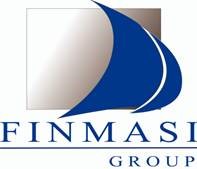
Our collection of resources based on what we have learned on the ground
Resources
Q&A
What role does the manufacturing industry play in the growth of the Indonesian e...

- February 2015
- Free Access
The manufacturing industry counts for 24% of the country's GDP. This means that as of 2011, roughly 14.4 million out of a total of 250 million Indonesians work in this industry.
Q&A
What are the predictions for the amount of economic growth in the manufacturing ...

- February 2015
- Free Access
From 2006 to 2011, India's manufacturing sector has sustained a compound annual growth rate of 17.1% . At this rate, predictions are that by 2025, it could reach up to a value of US$ 1 trillion and account for 25-30% of India's overall GDP. It could ...
Q&A
What is an Early Harvest Scheme (EHS), and what role have they played in India?s...

- February 2015
- Free Access
An Early Harvest Scheme (EHS) is an agreement between two states (or regional trading blocs) which liberalizes tariffs on certain goods preceding the conclusion of a Free Trade Agreement (FTA). India is particularly fond of such EHS arrangements, and...
Q&A
Which regional economic blocs does India hold Free Trade Agreements (FTAs) with,...

- February 2015
- Free Access
India has concluded Free Trade Agreements (FTAs) with the 10 member states of the Association of South East Asian Nations (ASEAN) and the South Asian Association for Regional Cooperation (SAARC), an 8 member regional bloc with which India helped nego...
Q&A
What implications can India?s current and future Free Trade Agreements (FTAs) ha...

- February 2015
- Free Access
Free Trade Agreements (FTAs) are complex arrangements for any country, and India’s tangled bureaucracy only increases its FTAs’ complexity. Whether an FTA impacts an investor depends on factors such as whether, and to what extent a given ...
Q&A
What are Double Tax Agreements (DTAs) and how might foreign investors in India b...

- February 2015
- Free Access
Double Tax Agreements (DTAs) are bilateral agreements under which two states formalize tax rates (for taxes ranging from corporate to withholding tax) for individuals and corporate entities. India has over 90 such arrangements with other countries. F...
Q&A
Why is Singapore such an important source of Foreign Direct Investment (FDI) int...

- February 2015
- Free Access
Singapore accounted for almost 25% of India’s total Foreign Direct Investment (FDI) in 2013-14. This large share is explained by a provision of Singapore Double Tax Agreement (DTA) with India – the Limitation of Benefit (LoB). The LoB pro...
Q&A
What requirements must be met to obtain a Production License in China?

- February 2015
- Free Access
To obtain a Production License, an enterprise must: • Possess a business license, as well as technical personnel and production conditions suited to the product in question; • Have in place an effective system of inspection, qualit...
Q&A
What does China Energy Label (CEL) entail?

- February 2015
- Free Access
In recent years, energy efficiency has become a greater focus of Chinese product regulations. The CEL is a system of compulsory certification for specified electronic devides, and is equivalent to the EU Energy Label. Introduced in 2005, CEL places p...
Q&A
What is the difference between "show business" and the "entertainment industry?"...

- February 2015
- Free Access
There are a few critical structural differences between the West’s culture of “show business” and China’s administrative definition of the “entertainment industry” (娱乐业). Show business encompasses a plethora ...
Q&A
Why is business scope important when entering China?s entertainment industry?

- February 2015
- Free Access
A company’s business scope is a one-sentence description of the industry or industries it is authorized to operate in. It defines a company’s operations in China and is important because there is a large legal risk of disingenuously opera...
Q&A
What did the 2014 VAT reform change for businesses in the entertainment industry...

- February 2015
- Free Access
As of January 2014, taxation for “Modern Services” was made subject to Value-added Tax (VAT) rather than the previous Business Tax (BT). “Modern Services” includes radio, film and television production, distribution and broadc...
Enquire for more information about our services, and how we can help solve challenges for your organization
Contact UsOur Clients
Discover our esteemed global clients across diverse sectors. We believe in providing our clients with exceptional service and a commitment to being their partner for growth in Asia.
See what our clients say about us



























